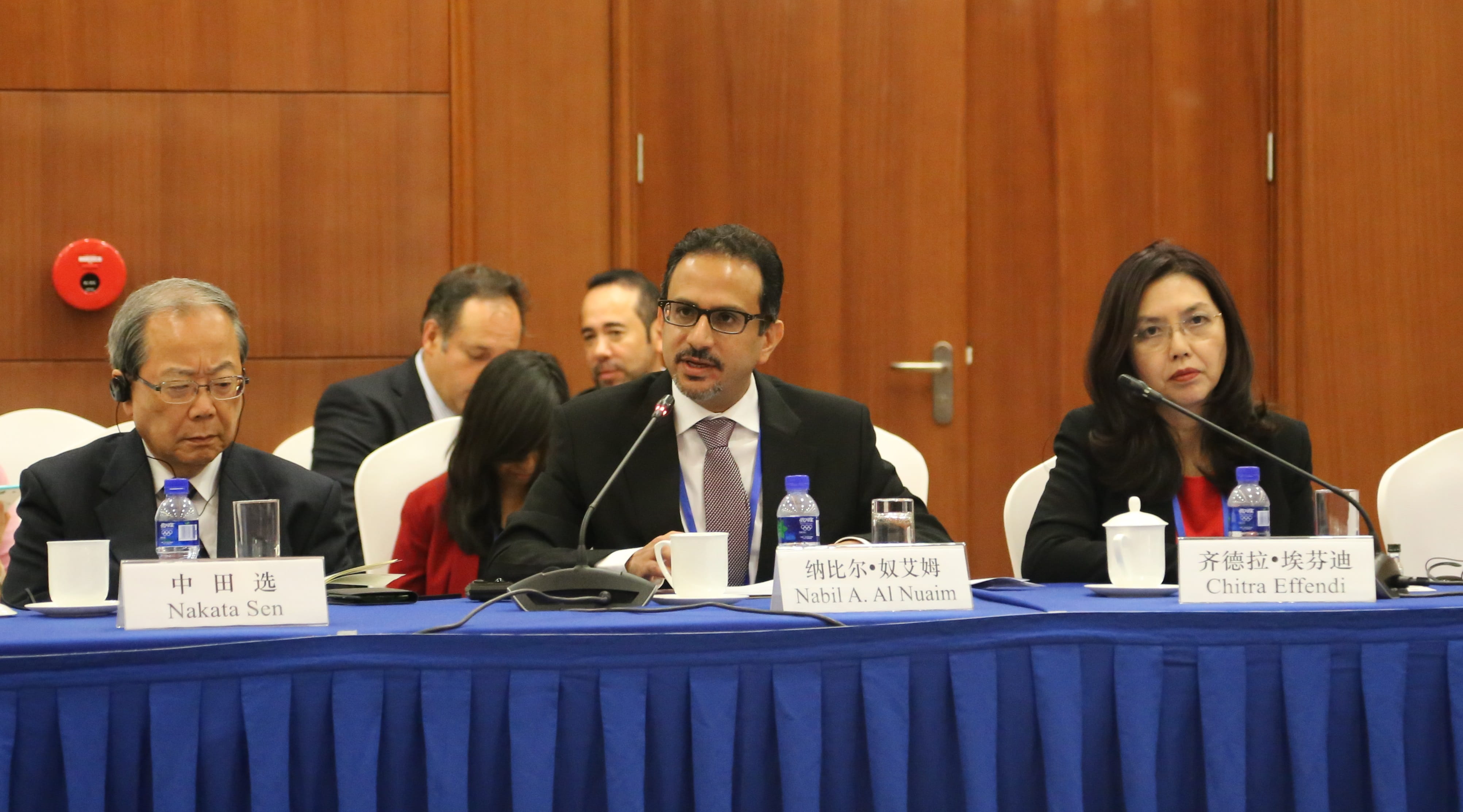Speaking to more than 100 entrepreneurs, institute professionals, and government officials, Nabil A. Al-Nuaim, president of Aramco Asia, emphasized Aramco’s promise to play a part in a new “Silk Road” collaboration with China.
His comments came during The Chinese-Foreign Business Dialog portion of the Asian Special Conference on the Silk Road, which was held Oct. 14-16 in Beijing.
The New Silk Road Economic Belt over Land and the 21st Century Maritime Silk Road over the Ocean initiatives were introduced by Chinese President Xi Jinping in 2013 to enhance international cooperation.
Saudi Arabia, which was a critical player in the ancient Maritime Silk Road, agreed to participate in the modern-day version, and on March 14, the Kingdom joined the list of founding states of the Asian Infrastructure Investment Bank (AIIB) to support these Belt and Road strategic initiatives.
Al-Nuaim pointed to the cooperation between the company and Sinopec in developing a world-class refinery and chemical integrated project, both in China’s southern Fujian Province and in the Kingdom at Yanbu.
“The two investments complement each other and allow both energy giants to provide unique energy trade opportunities between the Pacific Region, the Middle East, Africa, and Europe. We see them as true examples of ‘Energy Silk Road-like’ partnerships,” Al-Nuaim said.
Al-Nuaim also highlighted the exchange in technology, noting that Aramco inaugurated its Beijing Research Center in April. A first for the company in the Asia-Pacific region, the center, which is driven by young Chinese scientists, will extend its research agenda into the downstream arena in addition to its current upstream activities.
Meanwhile, he further noted that China’s impact in the Kingdom is significant as well, in particular in Jazan Economic City and Ras al-Khair City. He added that not only can Chinese manufacturers and service providers benefit from such project but that “with the current developments of refineries, industrial cities, and infrastructures, the Kingdom can become a strategic platform for Chinese and Asian investors that are eager to go global and expand their market footprint.”
Al-Nuaim said that collaboration has even spilled into the realm of education, where 1,200 Saudi students are currently enrolled in Chinese universities and there is a growing representation of Chinese students enrolled at KAUST and other Saudi schools.
“We believe that collaboration between business communities, institutions, investors, and governments will yield great mutual benefits and help the prosperity of our nations,” he said.
Nabil A. Al-Nuaim, center, recently attended the Asian Special Conference on the Silk Road in Beijing. Speaking to more than 100 professionals and politicians at the event, Al-Nuaim touted the Kingdom's historic role in the ancient Silk Road and its promise to play a part in the new Silk Road collaboration.
Photo caption: Nabil A. Al-Nuaim, center, recently attended the Asian Special Conference on the Silk Road in Beijing. Speaking to more than 100 professionals and politicians at the event, Al-Nuaim touted the Kingdom's historic role in the ancient Silk Road and its promise to play a part in the new Silk Road collaboration.


.jpg?cx=0.5&cy=0.5&mw=10)

